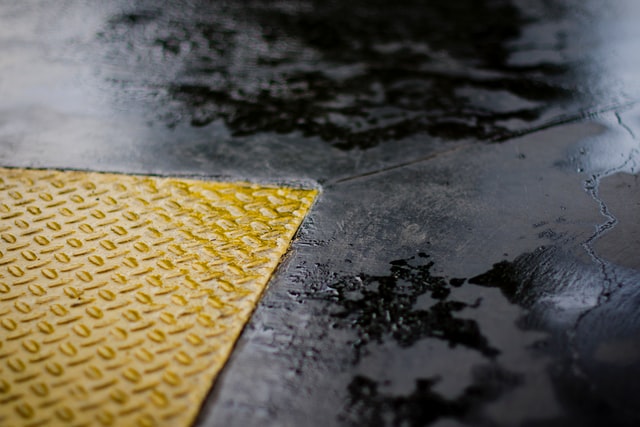Epoxy floor coatings are well-known for their ease of maintenance and long life expectancy. Moreover, they are extremely popular that, in addition to being little care, they are long-lasting, strong, shiny, and just extremely gorgeous. The following are some straightforward instructions for cleaning an epoxy-coated garage floor. It will remain beautiful and pure for the entire period of its life if we follow the instructions exactly as they are written.
Grease, oil, and water can all damage epoxy floors, regardless of the fact that they will be exceedingly hard to destroy. However, even if the damage does not occur right away, you should clear up the mess before it becomes irreparable. How to get epoxy out of porous materials such as wood or concrete is covered in this tutorial. Make certain that you use the proper solvent for the work in question
Because of the glossy finish that an epoxy floor has, it is not essential to wax the floors on a regular basis, which saves time and money. If you notice that your epoxy painted floors have lost their overall brilliance, you can add many layers of wax to bring back their lustre while also protecting them.It is recommended that you clean the entire floor at least once a year to help keep it looking good. Cleaning the floor with hot water and drying it with a squeegee is an effective method of accomplishing this goal. In order to avoid dulling the floor surface, it is necessary to remove any residues or cloudiness.
Table of Contents
What You Should Know About Cleaning Your Garage Floor
The coating’s longevity is also reduced as a result of this method. A neutralizing agent should be kept in your garage because chemical spills might occur regularly in an atmosphere where there are automobiles. Use a neutralizer when washing chemicals with water to prevent undesirable reactions from occurring when concentrated chemicals come into contact with water. After that, use a cleaning cloth, such as a chamois, or a rubber or foam squeegee to remove any residual liquid from of the surface of the surface.
Ammonia Diluted in Water Provides Superior Epoxy Floor Cleaner
The most effective cleaning option for your epoxy floor is diluted ammonia. You’ll combine 3-5 ounces of ammonia with a gallon of hot water to wash your epoxy floor, and then you’ll use this solution to do it. Use of citrus solutions based on vinegar should be avoided since they have a tendency to leave streaks on the surface. It is also common practice to avoid soap-based cleaners for two reasons: they are corrosive to the environment and they are toxic to the body.
First and foremost, they leave a haze behind after each usage, which accumulates over time and eventually dulls the lustre of your flooring, as previously mentioned. Second, when the soap residue comes into touch with water, it can make the floor slippery, posing a safety concern to the person walking through it. After you have finished washing your floor, make sure to thoroughly rinse it with plenty of fresh water.
By Scrubbing, you can remove stains
If, for whatever reason, you come across stubborn stains and blemishes, you’ll have to perform some scrubbing. Apply warm water to the sponge and scrub the stain, making sure to avoid contact with the surrounding area as much as you can. The temptation to use steel wool in order to remove a persistent stain may be strong, but resist the temptation.
When it comes to epoxy floors, steel wool is too abrasive. Stay away from harsh chemicals such as a comet for the same reason. To gentle scrub and wash away any stains on epoxy, all you need is a kitchen sponge and some water. Continue to try another wash if the first one does not yield results.
Is it possible to clean epoxy flooring with a steam cleaning machine?
Yes, steam cleaning is the ideal approach for cleaning hard epoxy floors because the steam contains properties allow it to remove dirt and grime such as grease. When it comes to durability and resilience, epoxy floor coatings are unsurpassed, and they retain their lustre even under the harshest of weather conditions.
How well does epoxy perform in terms of water resistance?
Concrete, despite its appearance of being strong and solid, is actually quite permeable. Moisturized soil beneath the slab will penetrate through it and reach the concrete’s top surface.
Is it possible to remove epoxy using muriatic acid and water?
Using 12 ounces of muriatic acid to one gallon of water ratio, prepare a muriatic acid wash for cleaning. Depending on how thick the epoxy coating is, it may well be necessary to repeat the process numerous times.
The reason for the yellowing of my epoxy
Exposure to ultraviolet radiation is, without a question, the most common cause of epoxy resin yellowing. The influence that ultraviolet light rays have on epoxy resin over time causes the molecules of the polymers to become excited, resulting in their breakdown over time. When the resin is exposed to the air, this normal impact of light exposure starts to occur instantly.
How well does alcohol work as a thinner for epoxy?
Because it has no effect on the physical qualities of the substance, distilled alcohol is a good thinning for epoxy resin. Generally speaking, when using denatured alcohol, the general rule of thumb is that at least 20% of the denatured alcohol should be mixed with the epoxy.
What is the efflorescence-preventing ability of epoxy?
In addition, when put to concrete as soon as it has cured completely, urethane and epoxy sealers can aid in the prevention of efflorescence.
Are epoxy garage floors capable of being power cleaned?
Will a pressure washer be able to clean the epoxy garage floor? Pressure washers are normally not required for epoxy floors, and they are also not advised for use on epoxy floors in the first instance.


